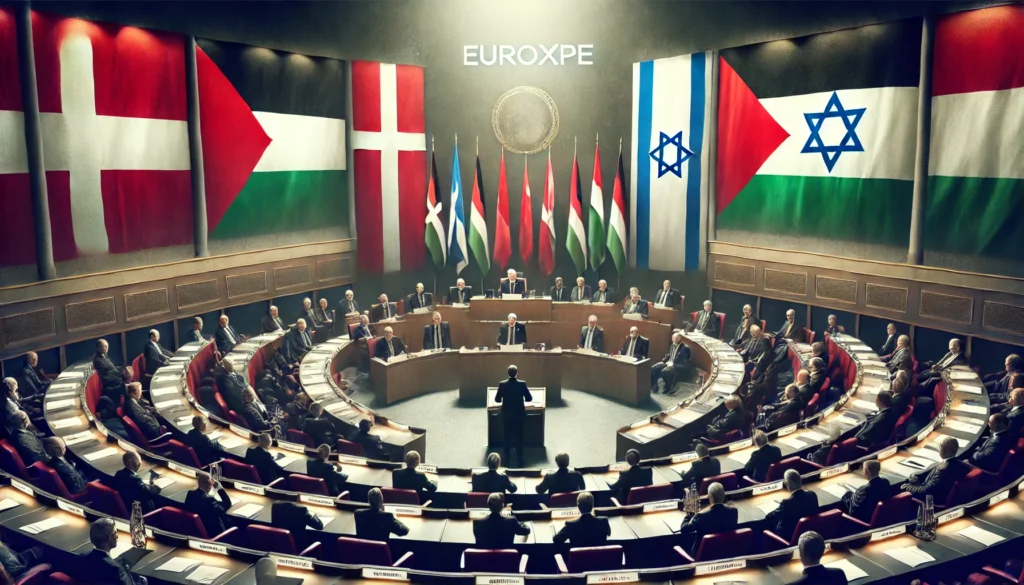In a significant decision on Tuesday, Denmark’s parliament rejected a proposal to recognise a Palestinian state, aligning with the government’s stance that the necessary conditions for such recognition were not yet in place. This move comes in contrast to recent decisions by Spain, Ireland, and Norway to endorse Palestinian independence, a step that has been met with strong reactions from Israel.
Israel, already feeling increasingly isolated after more than seven months of conflict with the Palestinian militants of Hamas, which rules Gaza, reacted with marked displeasure to these European endorsements. The conflict, marked by violence and diplomatic strife, has heightened tensions across the region and within international forums.
The Danish proposal was put forward by four left-wing parties. Sascha Faxe, a member of parliament for The Alternative, argued passionately that recognising a Palestinian state was crucial for achieving lasting peace in the Middle East. “The vast majority of Danish politicians agree that there will be no lasting peace in the Middle East without a two-state solution,” Faxe declared in parliament, emphasising that recognition would grant rights to ordinary Palestinians and foster peace efforts.
However, the Danish government, represented by Foreign Minister Lars Lokke Rasmussen, has consistently maintained that recognising a Palestinian state is premature. Rasmussen previously stated that Denmark could not extend recognition because the Palestinian territories lack a single functioning authority and control over their own territory. While he did not participate in Tuesday’s debate, Rasmussen has expressed hope that Denmark might one day support a Palestinian state under more favourable conditions.
This decision by Denmark underscores the broader division within the European Union regarding the recognition of Palestinian statehood. While some countries like Spain, Ireland, and Norway have moved forward with recognition, others remain hesitant, citing concerns about governance and regional stability.
The debate in Denmark reflects a complex intersection of foreign policy, regional security concerns, and the broader quest for peace in the Middle East. Proponents of recognition argue that it is a necessary step towards a two-state solution, which they see as the only viable path to lasting peace. Critics, however, point to the fragmented and often violent nature of Palestinian politics, particularly the divide between Hamas in Gaza and the Palestinian Authority in the West Bank, as major obstacles to statehood.
The ongoing conflict between Israel and Hamas, which has seen numerous ceasefire agreements and subsequent breakdowns, continues to be a major point of contention. The international community remains divided on how best to support peace efforts, with some advocating for immediate recognition of Palestinian statehood as a catalyst for change, while others call for a more measured approach, focusing on stabilisation and governance.
As Denmark takes its position, the debate over Palestinian statehood is likely to continue, with significant implications for international relations and the future of the Middle East peace process. The Danish parliament’s decision reflects the cautious stance many countries are taking, balancing the desire for peace with the complex realities on the ground.


